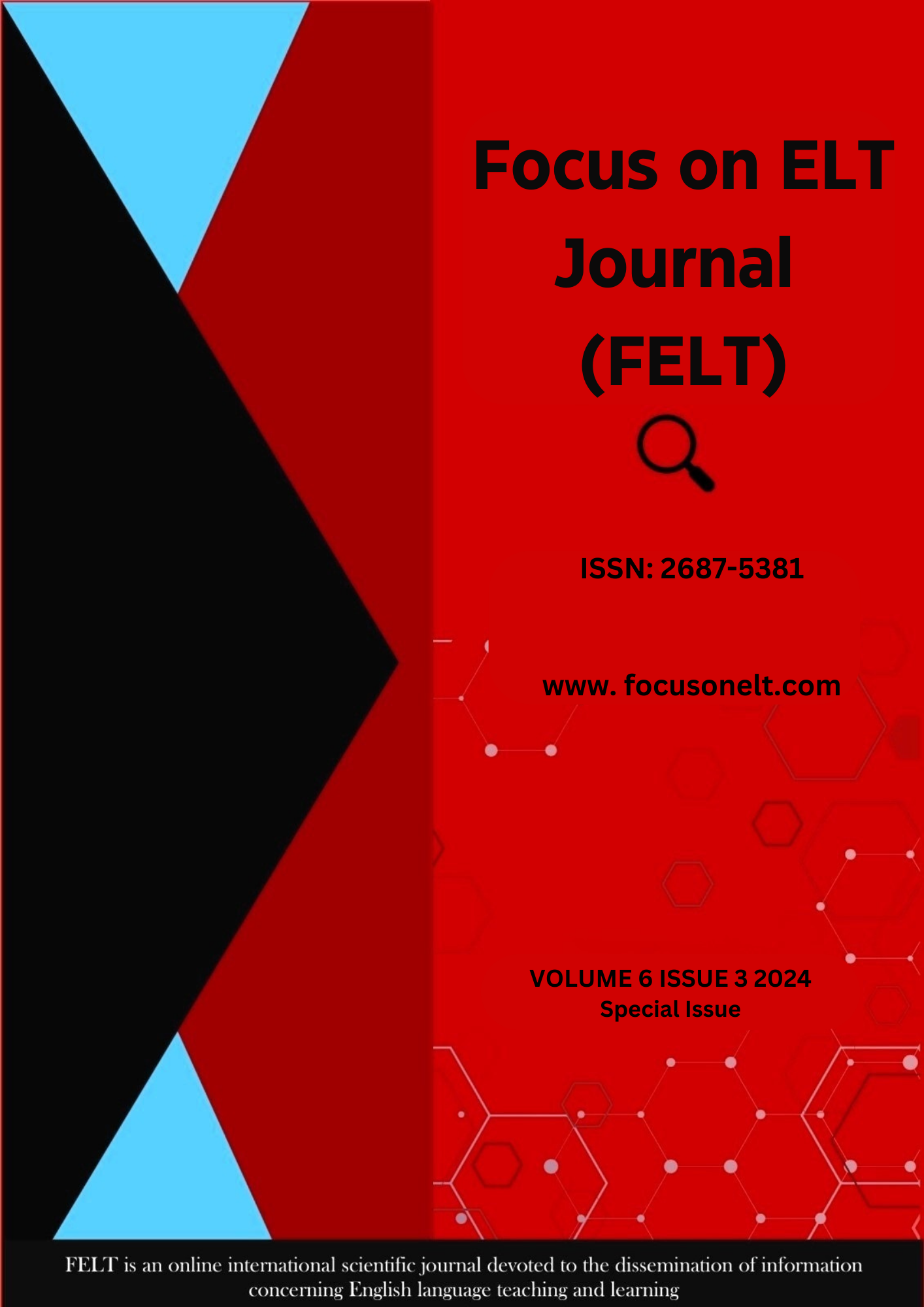We barely wrote this paper: Sociolinguistic relativity in Southwestern U.S. schools and its impact on English language teaching
Main Article Content
Abstract
This paper offers a critical discourse analysis of three potentially challenging communicative interactions between teachers and Spanish-speaking Active Bilingual Learners of English (ABLE) students in Southwestern U.S. schools. 1. Passive voice in situations involving causality is much more common in Spanish than in English; 2. results from a pilot study show how the word “barely” is frequently used as a temporal adverb, like “just,” by many individuals living in the Southwest who have grown up in a figured world influenced by the Spanish language and/or Chicano English; and 3. within the figured worlds of many students from Latin America, it is common to respectfully call one’s teacher, simply maestro, profe, Señor, or Señora. The equivalents of these in English often are met with disapproval by U.S. teachers feeling disrespected by being called “teacher,” “mister,” or “miss,” instead of their last name. Although certainly not comprehensive, these three kinds of language use uncover both the ubiquitous and the implicit sociolinguistic relativity of what we refer to as the “linguistic figured worlds” of Spanish-speaking ABLE students in the U.S. Southwest. We use a systemic functional linguistics approach to document this sociolinguistic relativity and to analyze its potential impact on English language teaching.
Metrics
Article Details

This work is licensed under a Creative Commons Attribution-NonCommercial-NoDerivatives 4.0 International License.
References
Boroditsky, L., & Gaby, A. (2010). Remembrances of Times East Absolute Spatial Representations of Time in an Australian Aboriginal Community. Psychological science, 21(11), 1635-1639.
Catalano, T., & Waugh, L. R. (2013). The language of money: How verbal and visual metonymy shapes public opinion about financial events.
Canagarajah, S. (2007a). Lingua franca English, multilingual communities, and language acquisition. The Modern Language Journal, 91(s1), 923-939.
Chandler, D. (1994). The Sapir-Whorf Hypothesis. Adaptation from the book The Act of Writing. Retrieved on October 20, 2012 from http://www.aber.ac.uk/media/Documents/short/whorf.html
Charteris-Black, J. (2004). Corpus approaches to critical metaphor analysis. Palgrave-MacMillan.
Eco, U. (1986). Semiotics and the Philosophy of Language (Vol. 398). Indiana University Press.
Fairclough, N. (1982). Bolinger Dwight, Language–the loaded weapon: The use and abuse of language today. London and New York: Longman, 1980. Pp. x+ 214. Language in Society, 11(1), 110-120.
Fairclough, N. (1995). Critical discourse analysis. The critical study of language. Language in social life series. London: Longman.
Fairclough, N. (2001). Language and power. Allyn & Bacon.
Fausey, C. M., & Boroditsky, L. (2008). English and Spanish speakers remember causal agents differently. In Proceedings of the 30th annual conference of the Cognitive Science Society (pp. 64-70).
Fausey, C. M., Long, B. L., & Boroditsky, L. (2009). The role of language in eyewitness memory: Remembering who did it in English and Japanese. In Proceedings of the 31st Annual Conference of the Cognitive Science Society, Austin, TX: Cognitive Science Society.
Foucault, M. (1981). The order of discourse. In R. Young (Ed.), Untying the text: A post-structural anthology, (pp. 48-78). Boston: Routledge & Kegan Paul.
Fought, C. (2002). Chicano English in context. Springer.
Fowler, R. and Kress, G. (1979) ‘Rules and Regulations’, in R. Fowler, B. Hodge, G. Kress and T. Trew (Eds.) Language & Control. London: Routledge & Kegan Paul.
García, M. (1984). Parameters of the East Los Angeles speech community. Form and function in Chicano English, 85-98.
Goffman, E. (1955). On face-work: an analysis of ritual elements in social interaction. Psychiatry: Journal for the Study of Interpersonal Processes; Psychiatry: Journal for the Study of Interpersonal Processes.
Guerrero Jr, A. (2014). ‘You Speak Good English for Being Mexican’East Los Angeles Chicano/a English: Language & Identity. Voices, 2(1).
Halliday, M. A. K. (1977). Text as semantic choice in social contexts. Grammars and descriptions, 176-225.
Halliday, M. A. K. (1978). Language as social semiotic: The social interpretation of language and meaning. London: Arnold.
Holland D., Lachicotte W. Jr., Skinner D., & Cain C. (1998). Identity and agency in cultural Worlds. Cambridge: Harvard University Press.
Kaplan, R. B. (1966). Cultural thought patterns in inter‐cultural education. Language learning, 16(1‐2), 1-20.
Kay, R., & Aylett, R. (1996, June). Transitivity and Foregrounding in News Articles: experiments in information retrieval and automatic summarising. In Proceedings of the 34th annual meeting on Association for Computational Linguistics (pp. 369-371). Association for Computational Linguistics.
Kecskes, I. (2000). A cognitive-pragmatic approach to situation-bound utterances. Journal of Pragmatics, 32(5), 605-625.
Machin, D., & Mayr, A. (2012). How to do critical discourse analysis. London: Sage.
Medina, J. (2014). My name is Jorge: On both sides of the river. Highlights Press.
Norton, B., & Christie, F. (1999). Genre Theory and ESL Teaching; Genre Theory and ESL Teaching: A Systemic Functional Perspective. Tesol Quarterly, 33(4), 759-763.
Pennycook, A. (1998a). English and the discourses of colonialism. London: Routledge.
Pennycook, A. (2001). Critical applied linguistics: A critical introduction. Taylor & Francis US.
Pritchard, R. (2011). Teacher. Keep Believing Ministries
Przymus, S. D., Faggella-Luby, M., & Silva, C. (2020). It's only a matter of meaning: from English Learners (ELs) and Emergent Bilinguals (EBs) to Active Bilingual Learners/Users of English (ABLE). I-LanD Journal: Identity, Language and Diversity: 2, 2020, 30-50.
Robinson, K. (2000). " Great Tits, Miss!" The silencing of male students' sexual harassment of female teachers in secondary schools: A focus on gendered authority. Discourse: studies in the cultural politics of education, 21(1), 75-90.
Ruiz, R. (2016). The ontological status of burritos. In Honoring Richard Ruiz and his Work on Language Planning and Bilingual Education. Multilingual Matters Ltd.
Said, E. (1979). Orientalism. 1978. New York: Vintage, 1994.
Sinclair, John. 1991. Corpus, Concordance, Collocation. Oxford University Press.
Sturrock, J. (1986). Structuralism. London: Paladin Books.
Susser, B. (1998). EFLAfs Otheringof} apan: OrientaIism in English Language Teaching. JALT journal, 20(1), 49.
Urrieta Jr, L. (2007). Figured worlds and education: An introduction to the special issue. The urban review, 39(2), 107-116.
Vygotsky, L. (1962). Thought and Language. Cambridge, MA: M.I.T. Press

